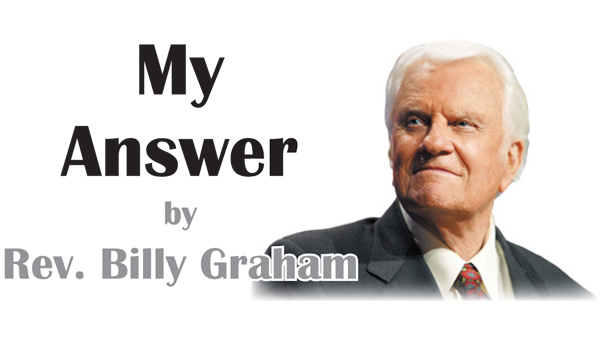A recent inquiry to the late Rev. **Billy Graham** highlights the complex relationship between faith and perception in the business world. In a letter from a reader known as **B.P.**, the writer expresses concern over a backlash from a business partner regarding their newfound Christian beliefs. The partner described Christianity as a “militant religion” that uses the Bible as a weapon, prompting B.P. to seek clarity on this characterization.
In his response, Graham delineates the role of faith in the lives of believers. He emphasizes that the Bible and prayer serve as essential tools for Christians, empowering them in the face of adversity. Rather than viewing these elements as instruments of offense, Graham suggests they are primarily defensive, meant to protect and guide believers against negative influences, specifically referencing spiritual adversities.
Understanding Spiritual Weapons
Graham draws upon the biblical account of **Daniel’s** three friends, **Meshach, Shadrach, and Abednego**, who were faced with a dire situation. When commanded by **Nebuchadnezzar**, the king of **Babylon**, to worship a golden statue, the trio stood firm in their faith. They famously proclaimed, “O Nebuchadnezzar, … our God whom we serve is able to deliver us from the burning fiery furnace, and He will deliver us from your hand, O king. But if not, let it be known to you, O king, that we will not … worship the gold image” (Daniel 3:16–18, NKJV). This defiance led to their casting into a fiery furnace, where they were miraculously protected.
Graham points out that, in moments of extreme trial, such as those faced by Meshach, Shadrach, and Abednego, believers find strength in the **Word of God**. He asserts that God’s presence in difficult times is a source of hope and resilience. “I see four men … and the form of the fourth is like the Son of God” (Daniel 3:25, NKJV) is a testament to divine support when faith is tested.
Faith as Empowerment
The late Rev. Graham’s teachings suggest that while human weapons can inflict harm, spiritual weapons have the potential to foster understanding and a witness to truth and righteousness. He encourages believers to view their faith not as a means of aggression, but as a powerful defense against doubt and negativity.
B.P.’s situation illustrates a broader struggle many face when navigating their beliefs in professional environments. The challenge lies in balancing personal convictions with external perceptions. Graham’s insights offer a framework for Christians to reflect on their faith as a source of strength rather than a divisive tool.
The conversation initiated by B.P.’s letter encourages a nuanced understanding of how faith can coexist with professional partnerships. As individuals continue to explore their spirituality, the lessons from the Bible remain a guiding force. In a world where individuals may feel pressured to conform, the stories of resilience found in scripture serve as a beacon for those seeking to uphold their beliefs amidst challenges.
Through the lens of faith, believers are reminded of their capacity for resilience, using the teachings of the Bible as a source of empowerment and defense in life’s trials.







